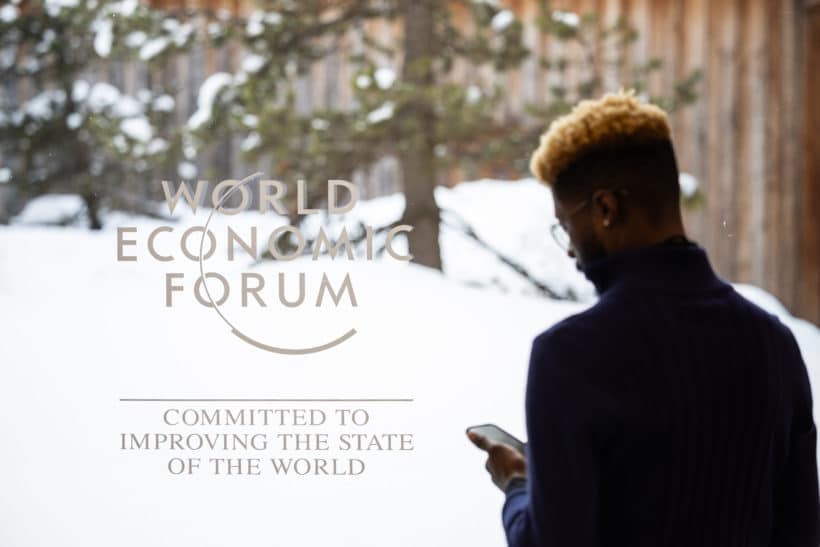DAVOS24 NEWSLETTER 5

New technology, and especially generative artificial intelligence, was a hot topic at the World Economic Forum in Davos-Klosters, Switzerland. Despite assurances by numerous proponents of AI that this technology will not make redundant the jobs of millions of people, many still seem to fear that it would do exactly that.
As day 5, the final day of the 54th Annual Meeting, drew to a close, climate change and what to do about it was another matter still left hanging in mid-air. All eyes are now on what will transpire at COP29.
Dollars and cents vs green energy
UN Secretary-General Antonio Guterres, in his keynote address at the WEF said the world is still not taking climate change seriously enough. He accused some big oil firms of peddling a “big lie” about their role in global warming and warned they should be held accountable. “Some in Big Oil peddled the big lie,” Guterres told the WEF. “We learned last week that certain fossil fuel producers were fully aware in the 1970s that their core product was baking our planet,” he said.
Dollars and cents economics, specifically investment by the financial powerhouses in the developing world, appears to be a more important issue for now than green energy. Leaders from many African nations are of the opinion that development is a necessary precursor to embracing green economics.
A case in point is Rwanda. Barely three decades after the devastating effects of the 1994 genocide, Rwanda is now regarded as the cleanest country in Africa, ready to help resolve the climate change dilemma, mostly thanks to investment, development, and the leadership of President Paul Kagame.
Financing Africa: Attracting foreign investment
Rwanda still seeks investment though, says Minister of State for Public Investment and Resource Mobilization, Jeanine Munyeshuli. In an interview with CBNC Africa’s Fifi Peters at Davos, she said her government has unveiled a series of initiatives to attract foreign investment. She pointed out that Rwanda’s economy is projected to grow at a rate of 6.2%, one of the highest in the world, and offers vast investment opportunities, especially in the aviation, ICT, tourism, and mining sectors. She added that the ease of doing business in Rwanda has improved tremendously.
https://www.cnbcafrica.com/media/6345176487112/rwanda-investment-opportunities-unveiled-at-wef/
One of Africa’s big oil producers, the Republic of Angola, equally seeks new investment. Angola with its significant oil production, stable politics, and low population makes it one of the better investment targets in Africa and the developing world. CNBC Africa’s team at the WEF in Davos spoke with Vera Daves de Sousa, Angola’s Minister of Finance. She said there are many reasons why investors should be looking favorably at Angola. The country has had a stable and growing economy over the last twenty years.
LINK DAVES DE SOUSA https://www.cnbcafrica.com/media/6345179919112/angola-finance-minister-vera-daves-on-achieving-sustainable-growth-/
With an equally impressive projected growth rate of 5.2 percent (7% prior to COVID), Tanzania is seriously seeking new investment. In an interview with CNBC Africa’s Godfrey Mutizwa in Davos, Tanzanian Vice President, Dr. Philip Mpango, said his government intends to scale up investment in agriculture and is more than willing to enter into partnerships.
Seeking investment begs one big question. Are there still enough investors, specifically those willing to take on the risks of Africa, as well as green energy?
Yes, says the Chief Executive Officer and Founder of RSS Trade and Investment, Ipeleng Selele. She told the CNBC Africa team in Davos that the group is very Pan-African in its approach and as such offers strategic services to investors and those seeking investment. She emphasized the importance of watching trade patterns in Africa when advising on investment.
https://www.cnbcafrica.com/media/6345179258112/davos-sees-more-progress-and-diversity-with-women/
No shortage of funds for dividend-delivering investments
Sunil Kaushal, the Chief Executive Officer of Standard Chartered Africa and the Middle East, one of the biggest lenders and investors in Africa, also spoke to CNBC Africa about the present investment climate, saying that although worldwide money is a scarce commodity, technically there is no shortage of funds for proper, dividend-delivering investments. The problem is rather the inability of some nations to offer the investment banker a safe and reasonably guaranteed return. Kaushal shared his bank’s take on investment in 2024, with CNBC Africa’s Editor-in-Chief Godfrey Mutizwa.
LINK KAUSHAL https://www.cnbcafrica.com/media/6345186154112/kaushal-africas-economic-outlook-largely-positive/